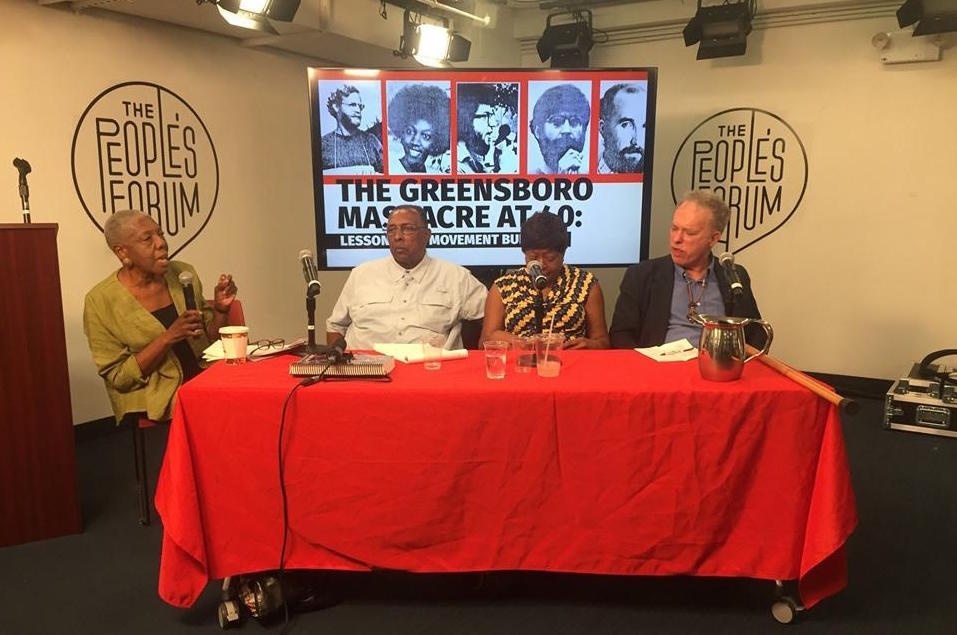INSTITUTE INDEX: 40 years later, still seeking justice for the Greensboro Massacre

At a panel discussion in September, survivors of the Greensboro Massacre discussed how they are still seeking justice today for the white supremacist attack that left five of their comrades dead 40 years ago. (Photo via the Greensboro Massacre: Lessons for Today Facebook page.)
Year in which a multiracial group of Communist Workers' Party members began organizing among mostly Black textile workers in North Carolina, a state that had long been hostile to unions: 1979
Date on which the organizers held a protest outside a Ku Klux Klan screening of the white supremacist film "Birth of a Nation" at the town hall in China Grove, North Carolina, one of several anti-Klan protests around that time in Southern states including Alabama and Mississippi: 7/8/1979
Date on which Communist Workers' Party members from across North Carolina gathered in Greensboro for an organizing conference and anti-Klan march: 11/3/1979
As the march was about to begin, number of armed Klansmen and American Nazi Party members — including a Greensboro police informant who had warned the department of the planned confrontation — that ambushed the marchers, who had young children with them: about 40
During the ambush, number of police officers who attempted to aid the marchers: 0
Number of seconds it took for the Klansmen and Nazis to shoot to death five marchers and injure 10 others before they were allowed to escape from the scene: 88
Number of days the Greensboro police jailed a marcher who had been stabbed in the attack because they feared he might start a riot in retaliation: 1
Despite video evidence, number of Klansmen and Nazis who were convicted by an all-white jury during a state criminal trial in 1980: 0
Number who were convicted during the 1984 federal civil rights trial after that jury, also all white, concluded the defendants were motivated by politics, not race: 0
Year in which survivors won a federal civil suit against the Klan, Nazi Party, Greensboro Police Department, FBI, and the U.S. Bureau of Alcohol, Tobacco and Firearms, whose agent had infiltrated the Nazis and knew about the planned confrontation but did not tell law enforcement: 1985
Of the $48 million requested in that suit, amount ultimately rewarded: $400,000
Of the 65 individuals charged in that suit, number found guilty: 7
To address the ongoing community trauma of the massacre, year in which citizens organized a Greensboro Truth and Reconciliation Commission modeled after a similar effort in post-apartheid South Africa: 2004
Year in which the commission released a 500-page report that detailed how the police had colluded with the Klan and Nazis, leading to the victims' deaths: 2006
Year in which the Greensboro City Council passed a resolution expressing regret for the murders: 2009
Year in which Greensboro unveiled a historical marker acknowledging that the incident was in fact a massacre and not a "shootout" as Klan and Nazi apologists claimed: 2015
Year in which the Greensboro City Council — moved by the deadly Unite the Right white supremacist rally in Charlottesville, Virginia — formally apologized for the massacre: 2017
Year in which a group of Greensboro pastors asked for another apology from the city that acknowledged the role of the police, and requested concrete actions to ensure nothing like that ever happens again: 2019
(Click on figure to go to source.)
Tags
Rebekah Barber
Rebekah is a research associate at the Institute for Southern Studies and writer for Facing South.
